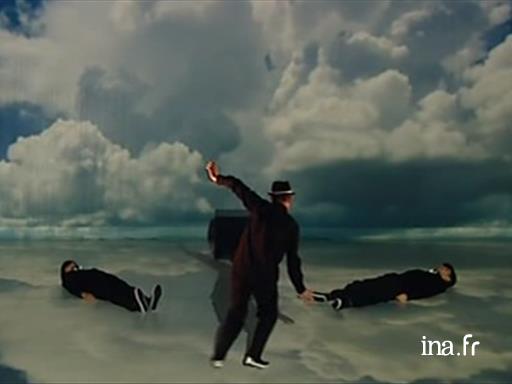Fluxus game, interview with Farid Berki

Information
"Fluxus Game": Hip hop, dance, and juggling, choreography by Farid Berki. The choreographer is interviewed at the théâtre de Suresnes where his show is produced. He explains his approach, his penchant for crossing borders, being of mixed origin himself. He describes hip hop as a hybrid par excellence.
- Europe > France > Ile-de-France > Hauts-de-Seine > Suresnes
Context
Farid Berki, from his home lino to abstraction
This is not the first escapade for Farid Berki, hip hop dancer from the North of France. His motivations cannot be explained in terms of a belligerent spirit or wanting to take a direct path to the hip hop movement. Farid Berki has always gone about doing things differently. One of the pioneers in the North of France, he quickly freed himself from American models but nonetheless retained the basic components of the discipline. After having danced a solo to flamenco music and revisiting Petrushka, one of his most recent performances in 2011, Vaduz 2036, he decided to address the notion of abstraction. He makes reference to Kandinsky, painter and sculptor who abandoned representational art.
For him, the important thing is not to stand out in society or to please conformists, but to combine his past experiences with the present that is free to be invented. Kandinsky, as a child, saw it everywhere: "even on the lino in the toilets» in his small working-class family home. This memory dates back to the creation of Vaduz 2036, a choreography stripped of any anecdote, of any social or political message. It is written to be played repeatedly, with a special attention to details, which are like precipitates of meaning, and acceleration of time. The choreography is abstract. The score uses the language of hip-hop, displacing it, stopping it in its momentum, de-constructing it. For example, the electrified hip-hop robots become akin to characters of Oskar Schlemmer, German painter and German choreographer who was a professor at the Bauhaus.
He was not the only one to open up new avenues, and it is nothing recent. In the middle of the 80s, the group Traction Avant de Vénissieux (69) already connected hip hop, contemporary dance and butoh. Another French Northerner, Brahim Bouchelagem, works with Russian dancers and Carolyn Carlson's haikus. Others, such as Sébastien Lefrançois, revisit France's romantic repertoire. Hip hop does not need to look for its roots, it already knows them too well. It provides insight into little-understood worlds, including the "documentary-like" dance of Hamid Ben Mahi.





